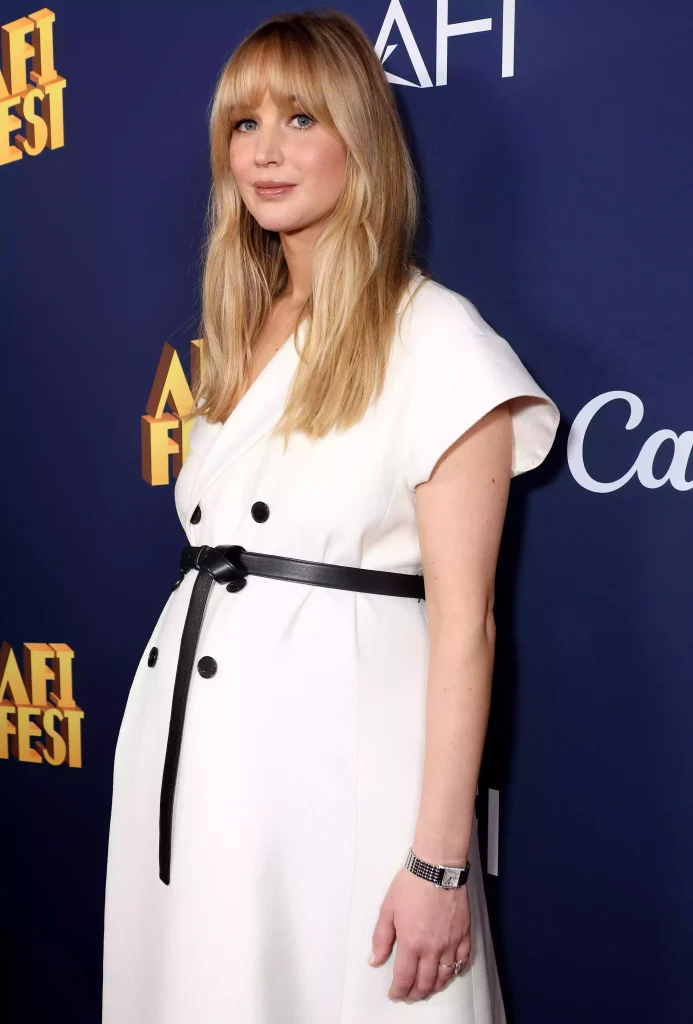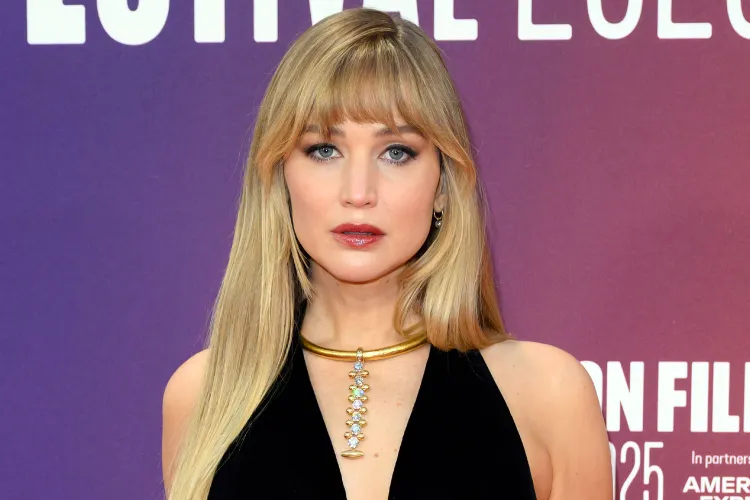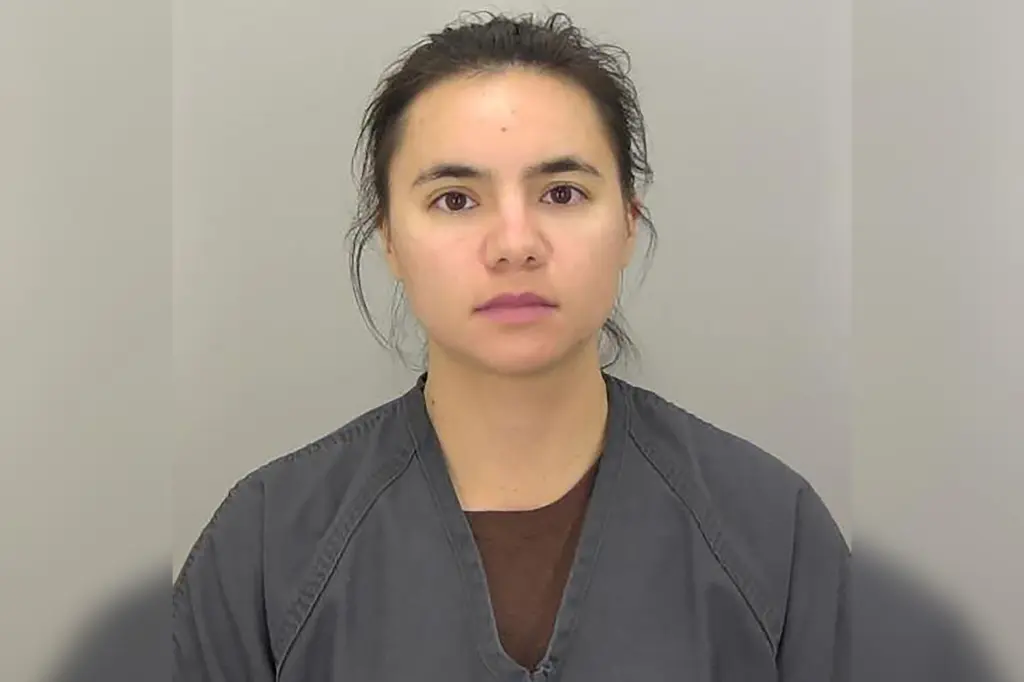Jennifer Lawrence Opens Up About Her “Really Bad” Postpartum Experience After Baby No. 2 — How It Transformed Her Life & Latest Role
Jennifer Lawrence, the Oscar-winning star whose bright presence has been a fixture of Hollywood for over a decade, is now sharing a chapter of her life that remains deeply private for so many: the raw struggle of postpartum after her second child. In a revealing conversation on the red carpet at the New York City premiere of her latest film, Die My Love, the 35-year-old actress described a period she calls “really bad postpartum,” a time that tested her mind, body and identity as a mother — and ultimately shaped both her motherhood journey and her work. According to her, it was the second time becoming a mother that pushed her into waters she never expected, and through that struggle, she found richer emotional terrain for a role built on isolation, anxiety and the slippery line between reality and performance.

Lawrence, who welcomed her first son, Cy (born in 2022), with husband Cooke Maroney, has kept much of her personal life private. But she explained that while the postpartum experience after her first child was manageable, the second felt different. “I didn’t really end up having really bad postpartum [anxiety] until my second [baby],” she said. The film she stars in, Die My Love, directed by Lynne Ramsay, centers on a new mother, Grace, who drifts into a psychological unraveling after childbirth. For Lawrence, playing Grace wasn’t merely an acting challenge — it became a mirror.
“I think that just added another layer,” she reflected, speaking of having that real-life experience inform her performance. “I mean, I don’t think that you have to have kids to play a parent by any means, but having that information about, you know, what a tiny person needs, and is looking for. Just having that information was helpful.” Her openness underscores what many mothers feel in silence: that the transition to two children, the comments unanswered, the nights of reframing thoughts, the mood shifts, and the self-doubt can all converge into a potent, usually unspoken storm.
In a prior profile in The New Yorker, Lawrence described how disturbing the postpartum anxiety was. “I just thought every time he was sleeping he was dead,” she told the outlet. “I thought he cried because he didn’t like his life, or me, or his family. I thought I was doing everything wrong, and that I would ruin my children.” The admission is startling because it comes from someone at the apex of fame — the actress who made her breakthrough in Winter’s Bone, catapulted to front-page headlines with The Hunger Games, and then embraced serious fare like American Hustle. Yet here she is, speaking plainly about intrusive thoughts and motherhood’s dark corners.

That the experience coincided with her preparing to play a character whose narrative hinged on postpartum mental health made the project personal. The novel-based film, Die My Love, follows Grace and Jackson (played by Robert Pattinson) as their relationship strains in a remote setting after the birth of a child. For Lawrence, who was already pregnant with her second during filming in 2024, the boundaries between art and life blurred. She admitted the work required tapping into emotional grooves she knew all too well.
In a Cannes press conference earlier in the year, she described the postpartum phase as “extremely isolating.” “There’s not really anything like postpartum … it’s extremely isolating,” she told reporters. She acknowledged the film’s emotional core — a mother spiraling in isolation — struck a chord that hit beneath the surface of her own experience.
Beyond the on-screen resonance, Lawrence made clear that what she went through off-screen required help. In that New Yorker story, she revealed that she took a medication called Zurzuvae, which she said improved her symptoms “quickly and significantly.” She also shared an unexpectedly gentle moment: she was asking ChatGPT a question about breastfeeding, and the AI responded with soothing words: “You’re doing the most amazing thing for your baby. You’re such a loving mother.” For Lawrence, even that moment underscored how starved she was for reassurance.

What’s striking in her commentary is how motherhood and career no longer feel like parallel tracks; instead, they interweave. “Having children changes everything, it changes your whole life,” she said during one interview. “It’s brutal and incredible. They go into every decision of if I’m working, where I’m working, when I’m working.” She admitted that the emotional sensitivity of her profession changed with motherhood: “I didn’t know that I could feel so much and my job has a lot to do with emotion. It’s almost feeling like a blister or something — so sensitive.”
That kind of emotional awareness might have been a gift to the craft, but the rawness of it reveals the weight she carries as a new two-child parent in the public eye. One moment she described: filming Die My Love while five months pregnant with her second child — meaning that the emotional leak between performance and life was continuous. Actress and co-star Pattinson noted how he’d been a new parent too; how the experience of supporting a partner through postpartum requires its own emotional literacy.
From her earliest days as a public figure — young, defiant, witty — Lawrence has grown into someone with depth and a more careful voice. That evolution extends to how she now views her family, her art, and her identity. The acknowledgment that her second postpartum was more challenging than her first is a courageous public step toward dismantling the myth that motherhood must always be effortless or picturesque. It stands in solidarity with so many women who suffer quietly with anxiety, guilt, intrusive thoughts, and the fear of not measuring up.
There is no sugar-coating here. Lawrence says she thought, “Every time he was sleeping, he was dead.” She thought her baby’s crying meant something was fundamentally wrong. She thought she was failing. These are not snippets of casual discomfort. They are red-flag symptoms of something deeper. That she speaks about them now — amid a promotional tour, amid industry press, amid the perpetual glare — carries its own weight. She refused to let the narrative remain silent.
She also conveyed an important nuance: having had children didn’t qualify her automatically for playing a mother on-screen. But it did change the texture of her performance, gave her access to a deeper ministry of empathy. When she said “just having that information was helpful,” she meant that motherhood altered the lens through which she observed humanity — including the one her craft requires. Her character’s meltdown in Die My Love becomes less of an act and more of a lived experience filtered through cinema.
For the public, her disclosure is more than entertainment. It opens a conversation about postpartum mental health that too often resides behind closed doors. The glamor of celebrity doesn’t erase the real human experience of anxiety, isolation, identity loss, and healing. Her willingness to articulate the darkest moments frankly invites others to feel less alone, to consider that even amid success and fame, the transition into motherhood can feel destabilizing.
And yet, there is hope woven in the narrative. Lawrence mentions the community of other mothers — the park playdates, the mom-and-me classes, the shared slices of experience — as lifelines. She emphasizes that the motion forward came through help: therapy, medication, acknowledgment. She paints it not as surrender but as power: acknowledging the brokenness opened the door to art, to motherhood, to transformation.
In her career, this seems to mark a new phase. No longer just the irreverent, fearless young actor swatting away forms of celebrity — now, a woman who has stepped through the threshold of motherhood twice, who understands the fragility of identity and the weight of invisible work. She is still the star, but now there is someone speaking for the version of herself that was unseen, that was under duress, that felt alien and afraid.
Her clear advice isn’t born of preaching but of survival: speak up, get help, don’t assume it will look a certain way. The message comes with a grace: the image of perfection is not the measure; the acknowledgement of struggle can be the bridge. For Lawrence, the role of Grace in Die My Love was more than work — it was an expression of what she’d lived, what she’d feared, what she’d finally been able to voice. And in that voice there is resonance for others.
As she steps into this next chapter — motherhood, career, wellness — the public sees her with a renewed clarity. Not just as the bright actress who took the world by storm, but as a woman who has climbed the mountain of postpartum anxiety, turned it into art, and chosen not to hide the bruises. It’s enlightening, and yes, brave.
In the end, what Jennifer Lawrence is showing us is this: behind the red carpets and the accolades is a woman who felt unseen, trapped by her own mind after giving birth, and who used that pain not to stay silent but to speak louder — to bring nuance to a role, to bring depth to a life, and to bring hope to others who might be navigating similar dark hours behind closed doors. And in doing so, she reminds us that true strength sometimes lies in honesty, in vulnerability, and in the commitment to keep moving, even when you’re unsure if you’re standing on solid ground at all.



